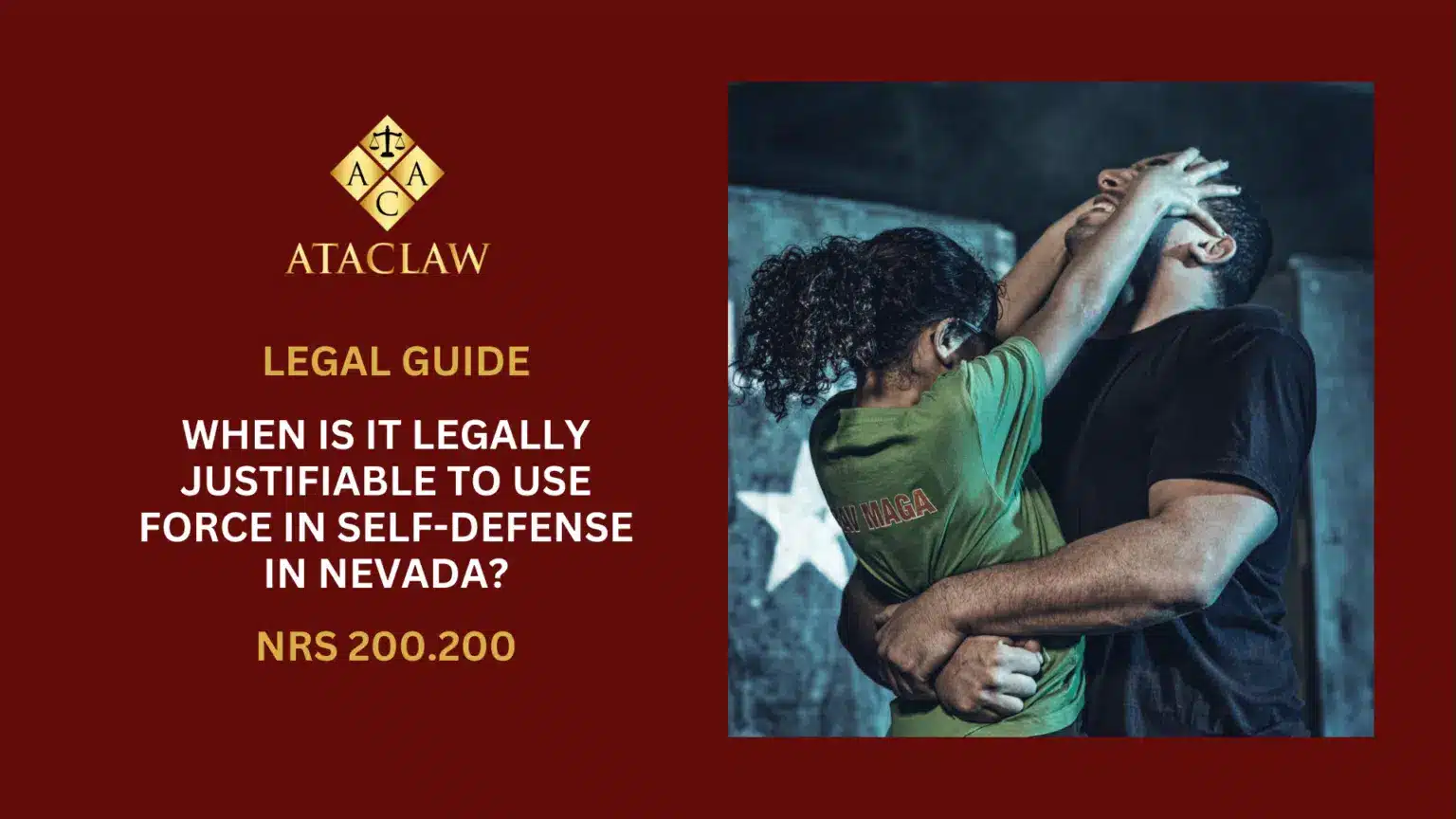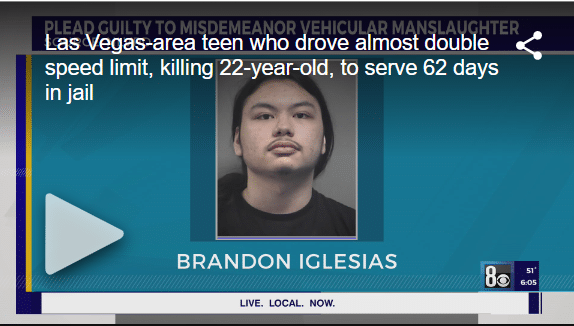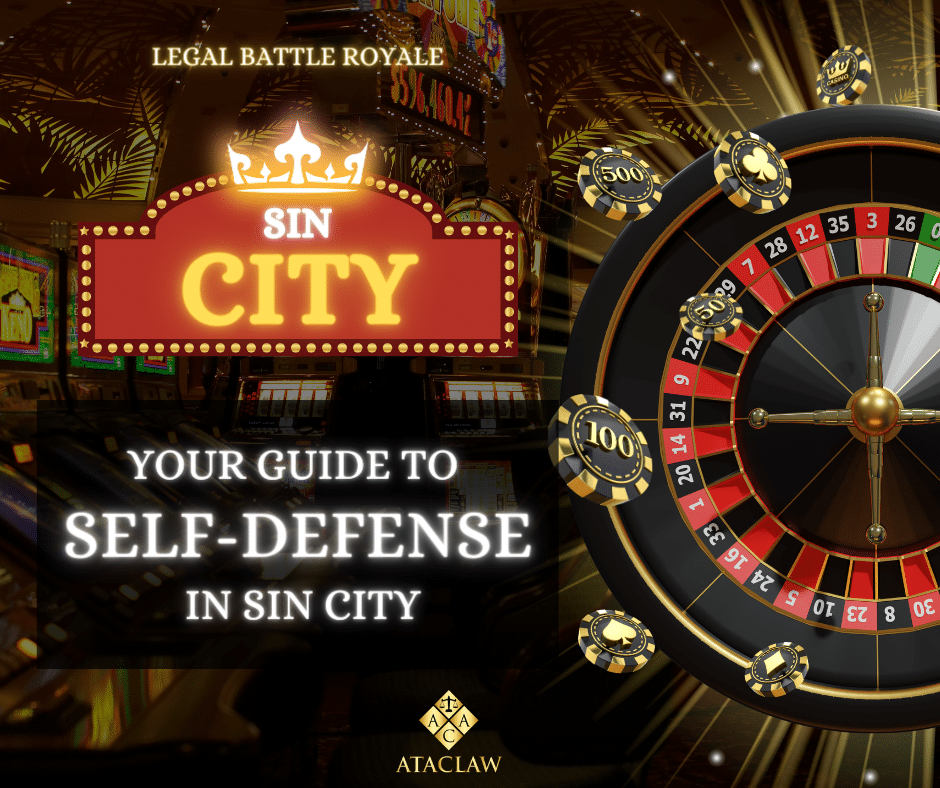The right to protect oneself, one’s family, and one’s property is not just a basic human instinct but is also enshrined in Nevada law. Understanding when and how you can legally defend yourself is crucial not just for peace of mind but also to ensure you’re acting within the boundaries of the law. In a world that doesn’t always feel safe, being aware of your legal protections and understanding the decision-making process in high-tension scenarios can be your strongest safeguard. Join us as we explore the critical aspects of Nevada’s self-defense laws, from the stand-your-ground principle to the defense of properties and loved ones, sharpening your legal knowledge on this vitally important topic.
When Is It Legally Acceptable to Defend Yourself in Nevada?
In Nevada, the law outlines specific conditions under which you can rightfully defend yourself or another person. These conditions hinge on two main factors:
- The individual defending themselves (or another person) must have a legitimate belief that they are facing a direct and immediate threat of physical harm.
- The force exerted in defense must be proportionate to the threat posed, meaning it should be no more than what is necessary to neutralize the threat.
As part of its legal framework, Nevada upholds the “stand your ground” doctrine. This principle asserts that individuals do not need to retreat or flee—even if the opportunity presents itself—before defending themselves, as long as their response is reasonable under the circumstances.
Illustrative Examples:
Scenario 1: Imagine Max asks Alex to leave his Henderson home, but Alex refuses. In response, Max applies a headlock, ushering Alex towards the door. While restrained, Alex draws a knife and stabs Max in the chest. Following this altercation, authorities apprehend Alex on charges of attempted murder with a deadly weapon.
In this scenario, Alex’s chances of successfully claiming self-defense appear slim. Although Max initiated physical contact, the severity of Alex’s response—using a knife—might be seen as excessive. A more moderated reaction, such as biting or punching to escape the headlock, would likely render a more favorable consideration for self-defense.
Scenario 2: After being released from the headlock outside Max’s residence, Alex re-enters the house and punches Max. Subsequently, Alex faces battery charges.
Alex’s claim to self-defense is weak here because, at the moment of retaliation, he was no longer under immediate threat. Regardless of Alex’s personal justification for his actions, the court would primarily assess the rationality of his belief in the need to defend himself.
Scenario 3: In a heated moment, Max warns Alex with a shout, “Watch out! I’m going to hit you!” and follows with a punch. Alex punches back with greater force, causing Max to stumble and lose consciousness. Following this incident, Alex is arrested for battery.
Under these circumstances, it’s likely that Alex’s battery charges would be dropped on self-defense grounds. Given Max’s overt threat and initial physical assault, Alex could reasonably perceive an immediate danger, justifying his defensive response as proportionate and necessary.
The intricacies of self-defense claims in Nevada hinge on the specifics of each situation. The courts meticulously analyze the sequence of events and the context in which force was used to determine the reasonableness of the defendant’s actions. Given the nuanced nature of these cases, grasping the subtleties of Nevada’s self-defense laws is crucial for individuals seeking to navigate these complex legal waters.
Is It Legal to Use Lethal Force in Self-Defense in Nevada?
In Nevada, employing deadly force in self-defense is permissible under very specific, narrow circumstances. Nevada law recognizes the right to defend oneself, even to the extent of committing what would be termed a justifiable homicide, provided certain stringent conditions are satisfied:
- The threat faced by the non-aggressor must be immediate and severe.
- The non-aggressor must be at imminent risk of death or serious bodily harm.
- A reasonable person in the same situation would have perceived a similar level of threat to their life and safety.
- The action taken was not motivated by revenge but was a necessary response to the threat.
In simple terms, one can only lawfully resort to lethal self-defense if they genuinely face an imminent threat of death or grave injury. The law does not support using deadly force out of a vague or unfounded fear of potential harm.
Scenario for Clarity:
Consider the situation where Jordan is walking home and encounters Casey, who brandishes a knife and demands Jordan’s wallet. If Jordan then manages to disarm Casey and, in the process, fatally stabs him, Jordan’s actions could be seen as a lawful exercise of self-defense under Nevada’s “stand your ground” laws. Casey’s aggressive actions represented a clear and immediate danger to Jordan, one that any reasonable person might perceive as life-threatening.
However, if Casey had not been armed, Jordan’s justification for using lethal force would likely not hold unless Casey engaged in a violent assault that posed a serious threat of harm.
Is There an Obligation to Retreat Before Using Deadly Force in Nevada?
The obligation to retreat in Nevada before resorting to deadly force is conditional. One is exempt from the duty to retreat if they meet the following criteria:
- The person did not initiate the altercation.
- The person is legally present at the location where deadly force is used.
- The person is not engaging in illegal activities at the time of the altercation.
These conditions imply that one can stand their ground and employ deadly force in self-defense without the need to flee, provided they are not the aggressor, are not trespassing, and are not involved in unlawful acts.
Illustrative Example:
Imagine Alex and Jamie engage in a heated argument while dining out. If Jamie, in anger, attempts to stab Alex with a steak knife, and Alex, in self-defense, counters and ends up stabbing Jamie instead, Alex’s actions could be viewed as lawful self-defense. In this setting, Alex had no legal obligation to retreat, given that:
- Jamie was the aggressor.
- Alex had every right to be at the restaurant.
- Alex was not participating in any criminal activity; they were merely dining out.
However, had Alex and Jamie been involved in illegal activities at the time—such as committing a burglary or manufacturing illegal substances—then Alex would be required to retreat before using deadly force.
Can You Legally Use Lethal Force Against a Home Intruder in Nevada?
In Nevada, the legality of using deadly force against a person intruding into one’s home is generally permitted under the state’s “Castle Doctrine.” This legal principle upholds the right of a homeowner, or an individual lawfully occupying a home or vehicle, to defend themselves against an intruder attempting to commit a felony, such as a home invasion.
Key Points of the Castle Doctrine in Nevada:
- Occupied Premises: The Castle Doctrine primarily applies to occupied homes and vehicles. The presence of occupants is a critical factor that legitimizes the use of lethal force in defense against an intruder.
- Felony Attempt: The act of intruding with the intent to commit a felony inside the home or vehicle authorizes the occupant to resort to deadly force. The law presumes a reasonable belief of threat when a felony is being attempted.
Illustrative Scenario:
Consider the situation where Charlie returns to his neighborhood after a night out and mistakenly tries to enter a neighboring house, thinking it’s his own, due to intoxication. The homeowner, Dana, hearing the attempts to force entry, perceives an imminent threat of a home invasion (a felony) and uses a firearm to stop the intruder, resulting in Charlie’s death.
In this context, Dana’s actions could be deemed justifiable under Nevada’s Castle Doctrine, given the reasonable belief of a felony attempt. The key factor here is the perceived threat linked to the intruder’s actions, regardless of the intruder’s actual intentions, which Dana had no way of accurately assessing at the moment.
Limitations: It is crucial to note the Doctrine’s restriction to occupied properties. If, for instance, Dana had not been home at the time of the incident but became aware of it from a distance, using lethal force would not be protected under the Castle Doctrine. The law specifically safeguards the defense of individuals inside the occupied property, not the property itself in the absence of occupants.
Can You Legally Protect Someone Else in Nevada?
In Nevada, the legal system recognizes the right to defend not only oneself but also others who may be in danger. The state does not differentiate between defending oneself and stepping in to protect someone else from harm.
For example, let’s say Alex is relaxing on his front porch and notices someone a short distance away being threatened by a person with a weapon. Reacting swiftly, Alex uses his firearm to neutralize the threat, resulting in the assailant’s death. When law enforcement arrives to assess the situation, they conclude that Alex’s actions were in legal defense of the stranger, and therefore, do not charge him with any crime.
In this scenario, the fact that Alex was not directly threatened, or that he had no personal connection to the individual he defended, does not alter the justification of his actions. The immediate danger faced by the stranger warranted Alex’s intervention, making his use of force legally defensible. This means that the principles governing self-defense are equally applicable when actions are taken to protect another person in Nevada.
In essence, Nevada’s approach to self-defense extends to situations where individuals act to prevent harm or potential danger to others, ensuring that the law supports those who take action in defense of others against immediate threats.
What Constitutes Imperfect Self-Defense?
Imperfect self-defense can be understood as a situation where an individual genuinely, yet mistakenly, believes they are acting in self-defense. Unlike perfect self-defense, which can completely absolve someone from legal responsibility, imperfect self-defense does not provide the same level of legal justification because the belief in the need to defend oneself is deemed unreasonable by the courts.
Let’s consider an illustrative scenario: Sarah’s neighbor confronts her and threatens physical harm if Sarah’s pet encroaches on his property again. Disturbed by the encounter, Sarah strikes her neighbor. In this instance, although Sarah might have felt that she was protecting herself, her perception of danger was disproportionate to the actual threat posed. Because there was no immediate risk to justify her preemptive strike, Sarah’s actions are characterized as imperfect self-defense.
The legal consequence in such cases, as with Sarah’s reaction to her neighbor’s threat, typically results in facing criminal charges. This is because the law generally requires an imminent and reasonable threat to justify the use of force in self-defense. When the use of force is excessive relative to the threat, or if there is no immediate danger, imperfect self-defense is likely to be the classification, which can lead to legal repercussions.
Can You Legally Defend Yourself Against Crimes in Nevada?
In Nevada, self-defense is recognized as a valid legal argument against accusations of violent crimes, including but not limited to resisting arrest, robbery, and sexual assault. If an individual, not initiating aggression, seeks to safeguard themselves, causing harm or even fatal injuries to their assailant may be legally justified under certain circumstances.
Self-Defense in Assault and Battery Cases
In instances of assault or battery, the law permits individuals to retaliate using force that is proportionate to the imminent threat they face. For instance, let’s consider a scenario where Alex owes money to Jordan, leading to a heated dispute. Jordan attempts to physically strike Alex, but Alex manages to deflect the blow and counterattack, causing Jordan to stumble and fall. Given that Alex’s response was in direct proportion to Jordan’s aggression, asserting self-defense should lead to the dismissal of any charges against Alex, provided this took place in Las Vegas. However, excessive force beyond what is necessary could complicate claims of self-defense.
Navigating Battery Domestic Violence Claims
The definition of Battery Domestic Violence (BDV) encompasses physical conflicts among family members, significant others, or roommates. These scenarios often witness the individual acting in self-defense wrongfully accused. Consider Taylor and Casey, where Taylor initiates physical aggression, and Casey’s attempt to protect themselves results in Taylor’s injury. Casey may find themselves facing charges if Taylor reports the incident. Nevertheless, proof such as video recordings or third-party witnesses demonstrating Casey’s self-defense could aid in exonerating them.
Defense in Murder Charges
Nevada statutes extend the right to self-defense to include lethal measures if one reasonably believes they or someone else is at an immediate risk of death or significant harm. Take, for example, Sam encountering an armed individual while walking alone. In a struggle, Sam disarms and neutralizes the threat. Although initially detained, evidence proving the aggressor’s intentions could absolve Sam of wrongdoing. Conversely, using deadly force without an immediate and credible threat undermines the legal protection typically afforded by self-defense.
Considerations for Battered Person’s Syndrome in Self-Defense Cases
In Nevada, claims of self-defense typically require a person to be facing an immediate and imminent danger of serious harm or death. However, exceptions may apply for individuals suffering from Battered Person’s Syndrome. This medical condition, which could affect anyone and is also known as Battered Woman’s Syndrome, may trigger a person who has endured repeated abuse to react defensively, potentially causing injury or death to their abuser not in the heat of the moment, but when the abuser is incapacitated or less threatening.
It is important to recognize that Battered Person’s Syndrome is not an outright defense to homicide but can be a critical factor in understanding the mental state of the defendant. If a court acknowledges that the accused has been afflicted by this condition, it opens the possibility for charges to be reduced or dismissed, even if an immediate threat was not present at the time of the abuse retaliation.
The “Castle Doctrine” and Home Invasion Defenses
Regarding home invasions, Nevada subscribes to the “Castle Doctrine,” which allows individuals in their dwellings or vehicles to use lethal force against unauthorized intruders. To illustrate, let’s discuss a case involving Morgan, who was at home when she noticed suspicious activity in her backyard through her home security system. Observing an individual attempting to enter with burglary tools, Morgan decides to use her firearm in response. Law enforcement, upon reviewing surveillance footage, opts not to press charges, acknowledging Morgan’s right to defend her home against the intruder.
Under Nevada law, the fact that Morgan could have evaded the intruder by fleeing her property is irrelevant. The state upholds her right to confront the threat and defend her property without the obligation to retreat.
How Can You Effectively Prove Self-Defense in Nevada?
When faced with a situation where you’ve had to defend yourself, proving that your actions were legally justified as self-defense is critical under Nevada law. Self-defense is acknowledged as an “affirmative defense,” placing the initial onus on the defendant to argue that their actions were a lawful method of protection. Once this claim is established, it becomes the prosecution’s responsibility to demonstrate, with a high degree of certainty, that the defendant’s actions did not align with the state’s self-defense laws.
To build a convincing self-defense case, several types of evidence are pivotal:
- Eyewitness Accounts: The credibility and perspective of individuals who witnessed the incident can significantly impact the case. Their testimonies can provide a clear, unbiased recount of the events leading up to and during the confrontation.
- Medical Expertise: Testimony from medical professionals regarding the injuries sustained can offer insight into the nature of the attack faced by the defendant, supporting the necessity of the defensive actions taken.
- Video Evidence: Surveillance footage or video recordings can play a crucial role in providing an objective view of the circumstances surrounding the incident, potentially corroborating the defendant’s version of events.
In situations where testimonies may seem unfavorable, an adept defense attorney can challenge the reliability of these accounts through strategic cross-examination, potentially weakening the prosecution’s case. It’s also worth noting that many self-defense claims are resolved before reaching the courtroom. Prosecutors, knowing the challenges of disproving a plausible self-defense claim beyond a reasonable doubt, may opt for negotiating a plea deal for a lesser charge, or in some instances, decide to drop the charges entirely if presented with convincing evidence supporting the defense.
Understanding the strategic importance of gathering and presenting robust evidence cannot be overstated for those asserting self-defense. This approach not only enhances the credibility of the defense’s claim but can significantly influence the case’s outcome, potentially leading to a full vindication.
For further legal assistance and to discuss your case with an expert, don’t hesitate to contact ATAC LAW.




